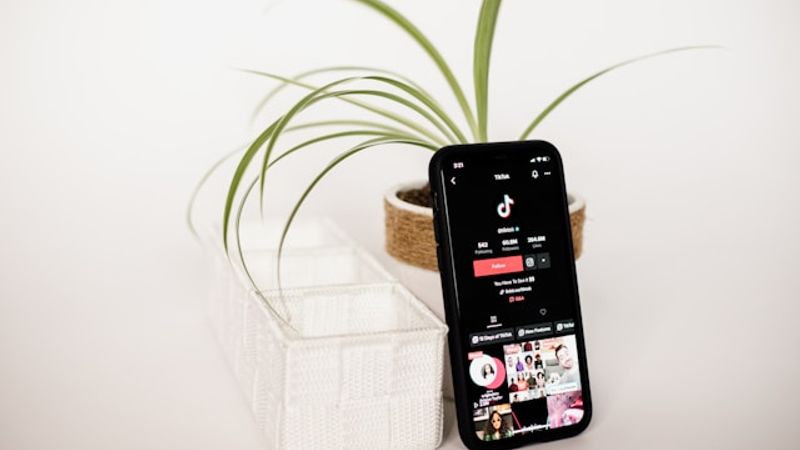Why the TikTok Ban is a Concerning Trend
The recent bans on TikTok in several countries have sparked a heated debate, raising concerns about the implications for digital rights, free speech, and the future of the internet. As governments increasingly exercise their power to restrict access to social media platforms, it’s crucial to examine the underlying motivations and potential consequences of such actions. This blog post will delve into the complex issues surrounding the TikTok ban, exploring the arguments on both sides and the broader implications for the digital landscape.
Why is TikTok Being Banned?
TikTok, the popular social media platform, has been the subject of increasing scrutiny and controversy, leading to bans or potential bans in several countries. The reasons behind these actions are multifaceted and have raised concerns about national security, data privacy, and the influence of foreign entities.
The Problem with TikTok
One of the primary concerns surrounding TikTok is the question of data privacy and security. TikTok is owned by ByteDance, a Chinese technology company, which has raised concerns about the potential for the Chinese government to access user data. This has led to fears that the app could be used for surveillance or the spread of misinformation.
Moreover, TikTok’s algorithm and content moderation practices have been criticized for potentially promoting harmful or addictive content, particularly among younger users. The app’s ability to rapidly disseminate viral content has also raised concerns about its potential to influence public opinion and sway political discourse.
Is TikTok Banned in Canada?
In Canada, the federal government has not yet imposed a nationwide ban on TikTok. However, the government has taken steps to limit the use of the app on government-issued devices, citing security concerns. In March 2023, the Canadian government announced that TikTok would be banned from all government-issued devices, effective immediately.
This move follows similar actions taken by other countries, such as the United States, where several states and the federal government have banned the use of TikTok on government-issued devices. The Canadian government’s decision is part of a broader effort to address the potential risks associated with the use of foreign-owned social media platforms on government devices.
Is TikTok Owned by China?
Yes, TikTok is owned by ByteDance, a Chinese technology company. This ownership structure has been a major source of concern for many governments and policymakers around the world.
ByteDance, the parent company of TikTok, is a privately-held company based in Beijing, China. The company has faced allegations of close ties to the Chinese government and concerns that the Chinese government could potentially access user data or influence the platform’s content moderation practices.
These concerns have led to calls for greater transparency and oversight of TikTok’s operations, as well as the potential for further restrictions or bans on the platform in various countries.
Solutions to the TikTok Ban
-
Increased Transparency and Oversight: One potential solution to the TikTok ban is to require greater transparency and oversight of the platform’s operations. This could include mandatory audits of the company’s data practices, content moderation policies, and any potential ties to the Chinese government. By ensuring that TikTok is operating in a transparent and accountable manner, governments may be more willing to allow the platform to continue operating within their borders.
-
Data Localization and Governance: Another solution is to require TikTok to store and process user data within the countries where it operates, rather than allowing data to be transferred to China. This data localization approach could be combined with the establishment of robust data governance frameworks, which would give users more control over their personal information and ensure that it is not misused or accessed by foreign governments.
-
Diversification of Social Media Platforms: Encouraging the development and use of alternative social media platforms that are not owned by foreign entities could also help address the concerns surrounding TikTok. By promoting a more diverse and decentralized social media landscape, users would have more options and governments would have more leverage in negotiating data privacy and security standards.
These solutions, if implemented effectively, could help address the concerns that have led to the TikTok ban in various countries, while still allowing users to enjoy the benefits of the platform. However, the ultimate decision on whether to ban or allow TikTok will depend on the specific circumstances and risk assessments of each country.
Here is a 1-paragraph conclusion in Markdown format for a blog post about why TikTok ban:
In conclusion, the TikTok ban is a complex and multifaceted issue that raises important questions about data privacy, national security, and the balance of power in the digital age. While proponents argue that the ban is necessary to protect against the potential misuse of user data and the influence of foreign adversaries, critics contend that it sets a dangerous precedent of government overreach and could have far-reaching consequences for free speech and the global digital ecosystem. Ultimately, the future of TikTok in the United States remains uncertain, and the debate surrounding the ban is likely to continue as policymakers grapple with the challenges posed by the rapid evolution of technology and the ever-changing landscape of geopolitics.

About Jessie Rei
I'm Jessie Rei, the mind behind Shewillbe.nyc. As a Tech Journalist, Author, and PR Campaign Manager residing in the heart of NYC, my mission is to demystify the tech world for you. With a passion for AI and emerging technologies, I bring a wealth of knowledge and a unique perspective to the table, aiming to make technology accessible and understandable for everyone. It's a pleasure to connect with you through my work.


 )
)